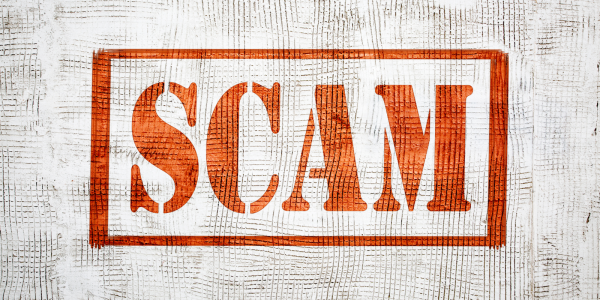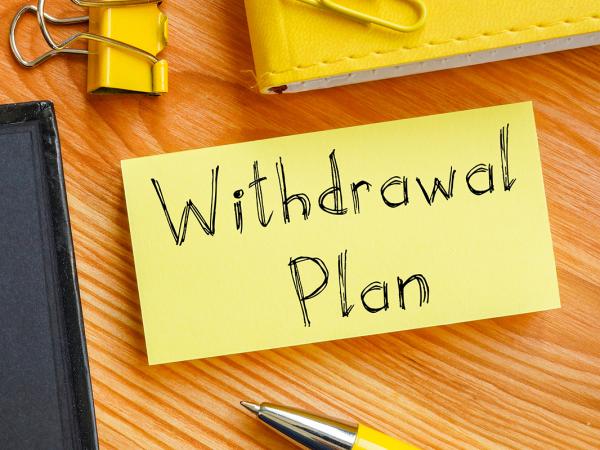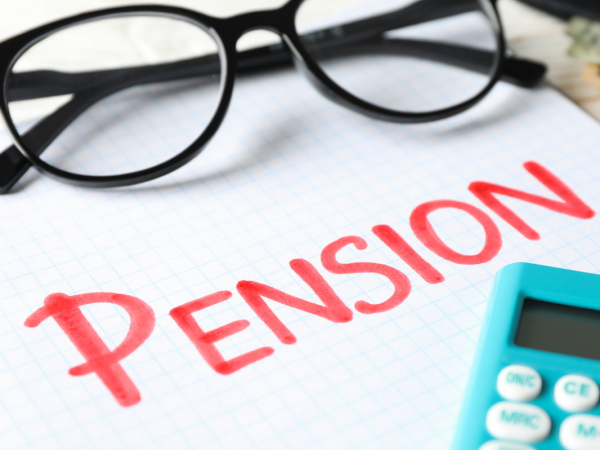Taking a pension under age 55? Watch out for scams!
If you are struggling financially, you may be tempted to withdraw money from your pension to help you out. This may not always be a good idea. There is a minimum age to take money from a UK registered pension (usually 55). If you take money out sooner, you are likely to face large tax charges. The scheme may be a scam – so you may face high fees and the rest of your savings may be stolen. So, know the warning signs of pension scams and don’t get caught out.

Content on this page:
The guidance in this article relates to UK registered pension schemes.
This article does not look at the state pension. The state pension is payable by the government. It is available to those who have made enough National Insurance contributions or received National Insurance credits over the course of their working life. You can read more about the state pension in our Pensions guidance.
Tax and your pension
Pensions offer some tax reliefs and benefits. Balancing the beneficial tax points (some of which we look at briefly below), there are some conditions. If those conditions are not met, then tax charges can result, as we explain below.
Tax reliefs and benefits of pensions
When you think of your pension and tax, you might think of the tax relief you receive when you make pension contributions.
You might also think of the fact that when you start to receive a pension, you can normally take 25% of the pension fund as a tax-free lump sum. Note that other amounts that you take from your own pension fund as income are taxable.
Drawing your pension
In respect of pension withdrawals, perhaps the most important condition is that normally you cannot withdraw any money from your pension fund before you reach the normal minimum pension age. This is currently age 55 but is going to rise to age 57 from 6 April 2028. If you withdraw money from your pension fund before you reach the normal minimum pension age, this might be considered an ‘unauthorised payment’. Such an unauthorised payment is subject to a large tax charge.
Most reputable pension schemes will not allow you to make an early withdrawal. If someone or an organisation offers you the chance to withdraw money early, it is likely to be a scam. You may lose part of your pension fund, as well as having to pay tax charges.
When you are allowed to take money from your pension fund early
There are some exceptions to the general rule about taking money from your pension fund before you reach the normal minimum pension age (currently age 55).
We have more detail about these exceptions in our guidance on pension withdrawals.
If you think any of the exceptions or exemptions might apply in your case, check the position with your pension provider.
I have been contacted by someone who says I can take my pension fund before the age of 55 – is it a scam?
It is very likely to be a scam, so you must be extremely cautious!
If you do not fall within one of the limited exceptions from the normal minimum pension age rule, you are not normally allowed to withdraw money from your pension scheme before age 55.
There are people and organisations who might suggest that you can take money from your pension fund early. These are likely to be running an early pension release scam. Such scams may be presented as offering pension liberation or a pension loan.
They may encourage you to transfer your pension into a different pension scheme that allows unauthorised payments, for example a scheme based overseas. They may offer cash incentives or suggest the withdrawal is a personal loan. They are also likely to suggest that there is a legal loophole meaning that there will be no tax to pay.
If you draw money out under one of these arrangements, HMRC would view this as an unauthorised payment. Unauthorised payments result in large tax charges.
The organisation that arranges the transfer is likely to charge you a high fee too.
This means that after the tax charges and fee, you end up with very little of the total withdrawal.
Tax charges on unauthorised payments from your pension
If you make a withdrawal from your pension that is an unauthorised payment, you will face one or two separate charges, depending on the proportion of the fund you withdraw:
- The unauthorised payments charge is 40% of the total value that you withdraw. You have to pay this on any unauthorised payment.
- The unauthorised payments surcharge is 15% of the total value that you withdraw. You pay this on any unauthorised payments that total 25% or more of your pension fund in a year.
This means that if your unauthorised payments amount to 25% or more of your pension fund in a single year, you will pay an overall tax charge at the rate of 55% of the unauthorised payment (40% plus 15%).
How to pay the tax charges
There are two possible methods of paying the unauthorised payment charge and surcharge to HMRC.
- The first method involves you signing a mandate at the time the unauthorised payment is made. This allows the scheme administrator to deduct the tax charge from the withdrawal and pay it across to HMRC on your behalf. Not all scheme administrators will offer this option.
- If the tax charge is not deducted before you get the payment, you must report and pay the tax charge under the self assessment system. If you fail to do so, you might face self assessment penalties in addition to the unauthorised payment charges.
From what we know, it is unlikely that the pension scheme administrator will deduct the tax charge before making the payment to you. This means that you must register to complete a self assessment tax return (unless you are already registered). You must report the tax charge on your return and pay the charge that is due.
Case study of pension liberation scam
It is August 2022. Bill is 52 years old. Since being made redundant a few months ago, Bill has been struggling to find regular work. His redundancy money is now running very low. He has a pension fund with a value of £100,000.
You can read below how Bill is left with only £12,500 after having taken half of the money (£50,000) out of his pension. Three quarters of his money has gone in tax and scheme fees, and the rest of his savings may also be in danger. We then give some tips on how to avoid getting caught out like Bill!
- The scam
-
Bill is excited when he receives a telephone call out of the blue from TED Pension Services Limited (“TED”) in September 2022. TED say that it is possible for them to transfer Bill’s pension fund from his current pension scheme to a scheme based in the Maldives. Then, that scheme will loan Bill 50% of his pension fund, that is £50,000.
TED say the fee for their services is 20% of the withdrawal / loan amount, that is £10,000 (£50,000 x 20%). TED also say that because it is a loan, there is no tax charge and that Bill does not need to report anything to HMRC.
On this basis, Bill signs up to the pension transfer and loan. In October 2022 he receives a payment of £40,000 from TED. All appears to be well to Bill, and he starts to spend his £40,000.
- Unauthorised payment
-
Unfortunately, the withdrawal from the pension is an unauthorised payment. Although Bill has only received £40,000, the unauthorised payment is the amount before TED deducted their fee, so it is £50,000.
Bill should report the unauthorised payment of £50,000 on a self assessment tax return, and pay both the unauthorised payments charge and the unauthorised payments surcharge by 31 January 2024. However, based on the information he receives from TED, he is unaware of these obligations.
- A letter from HMRC
-
In April 2024, Bill receives a letter and a calculation from HMRC. This is known as an assessment of tax. It also includes penalties, as Bill has not told HMRC about the tax charge and has not submitted a self assessment tax return reporting the unauthorised payment.
When Bill reads the letter, he realises the mistake he has made and that he has been taken in by a scam.
- Checking HMRC’s numbers
-
First, Bill checks the figures that HMRC have included in the assessment. Bill knows he actually received £40,000 but remembers that TED deducted a fee of £10,000. So, he recognises the figure of £50,000 that HMRC include for the unauthorised payment in the assessment.
The tax charge is 55% of the unauthorised payment, that is £27,500. Bill looks at the guidance on GOV.UK about tax charges on unauthorised payments. He sees that, as he withdrew 50% of his pension fund, the charge is correct at 55% (40% charge and 15% surcharge).
Bill works out what he has actually been left with, after TED’s fee and the tax charges. He withdrew £50,000, but after taking off the £10,000 fee and the £27,500 tax charge, Bill is left with only £12,500.
- Bill’s actions and options
-
Bill agrees with the assessment, so he should take steps to pay the amount due.
Note that if Bill had found that the figures on the assessment were incorrect, he could have made an appeal against the assessment. He would need to do this within 30 days of it being issued. He could also apply to postpone the tax due. However, interest would continue to be charged on any tax remaining payable.
Bill could also try to appeal against the penalties, and argue that he has a reasonable excuse as he has been tricked into the scam.
As Bill has started to spend the money he received, and he was not expecting the tax charge, he may find it difficult to pay the tax charge. One option would be for Bill to approach HMRC and explain the situation thoroughly, requesting that they consider using their care and management powers to reduce the sum on which the tax charge is based. For instance, Bill could explain that he actually received only £40,000 of the £50,000 total unauthorised payment.
HMRC are likely to consider Bill’s whole financial situation and are under no obligation to reduce the tax charge.
HMRC may offer Bill the possibility of paying any tax charge in instalments. Bill should ask for that facility if he will be unable to pay in one instalment.
- The rest of the pension fund
-
Bill needs to find out what is happening to the remaining half of his pension fund. TED transferred this into an overseas pension scheme.
Some people who are victims of pension scams find that their remaining pension fund is stolen outright.
Bill might seek professional advice from a reputable adviser. He might also use the resources on the MoneyHelper website and Financial Conduct Authority (FCA) website to report the scam, as he thinks it is important to try and prevent TED from scamming other people.
How to check if it is a scam
You should always be wary if someone contacts you uninvited about your pension, particularly if they are offering free advice or suggesting you could access your money early.
Also be careful if the returns being offered on any investment seem much more attractive than are being offered elsewhere or if the plan is to move your pension funds overseas.
Read the descriptions of various scams on the MoneyHelper website. You should also check that the person or organisation advising you is properly regulated as this gives you some protection if things go wrong. You can check them out on the website of the Financial Conduct Authority.
Action to take if you are a victim of a scam
If you have agreed to a pension transfer and withdrawal, but it has not yet gone through, contact your pension scheme as a matter of urgency. Ask them not to make the transfer.
Follow the guidance on the Financial Conduct Authority website, which sets out how you can report a pension scam.
Getting your money back
Unfortunately, if you have lost money because of a pension liberation scam, it may not be possible to get your money back or get any compensation.
If you have been a victim of a scam, MoneyHelper offer the opportunity to speak to a pensions specialist. They can talk to you about various matters, including rebuilding your pension funds.
More information
When it comes to pensions and accessing your private pension pot, taking professional advice is essential. An Independent Financial Advisor (IFA) can provide tailored advice about pensions and withdrawals. You can read more about finding an IFA on the MoneyHelper website. They also give information on financial advisers’ fees.
MoneyHelper runs the Pension Wise service for people aged 50 or over. Through Pension Wise you can arrange a free 60-minute consultation with a pension specialist to discuss your situation. Consultations are usually over the telephone, but they do offer a limited number of face-to-face appointments. We recommend that you consider making an appointment with Pension Wise before making any withdrawals from your pension pot.
Free information and guidance about pensions is available on the government run MoneyHelper website. We also have information about the taxation of pensions on the section of our website dedicated to Pensions.
HMRC’s guidance on unauthorised payments is on GOV.UK.
If you are unsure how your tax and/or benefits position might be affected by any withdrawals from your pension, we would recommend taking separate advice from a tax adviser or welfare rights adviser. You can find details about these (including the tax charities, who may be able to provide free tax advice if you are on a low income) on our Getting help with tax pages.



